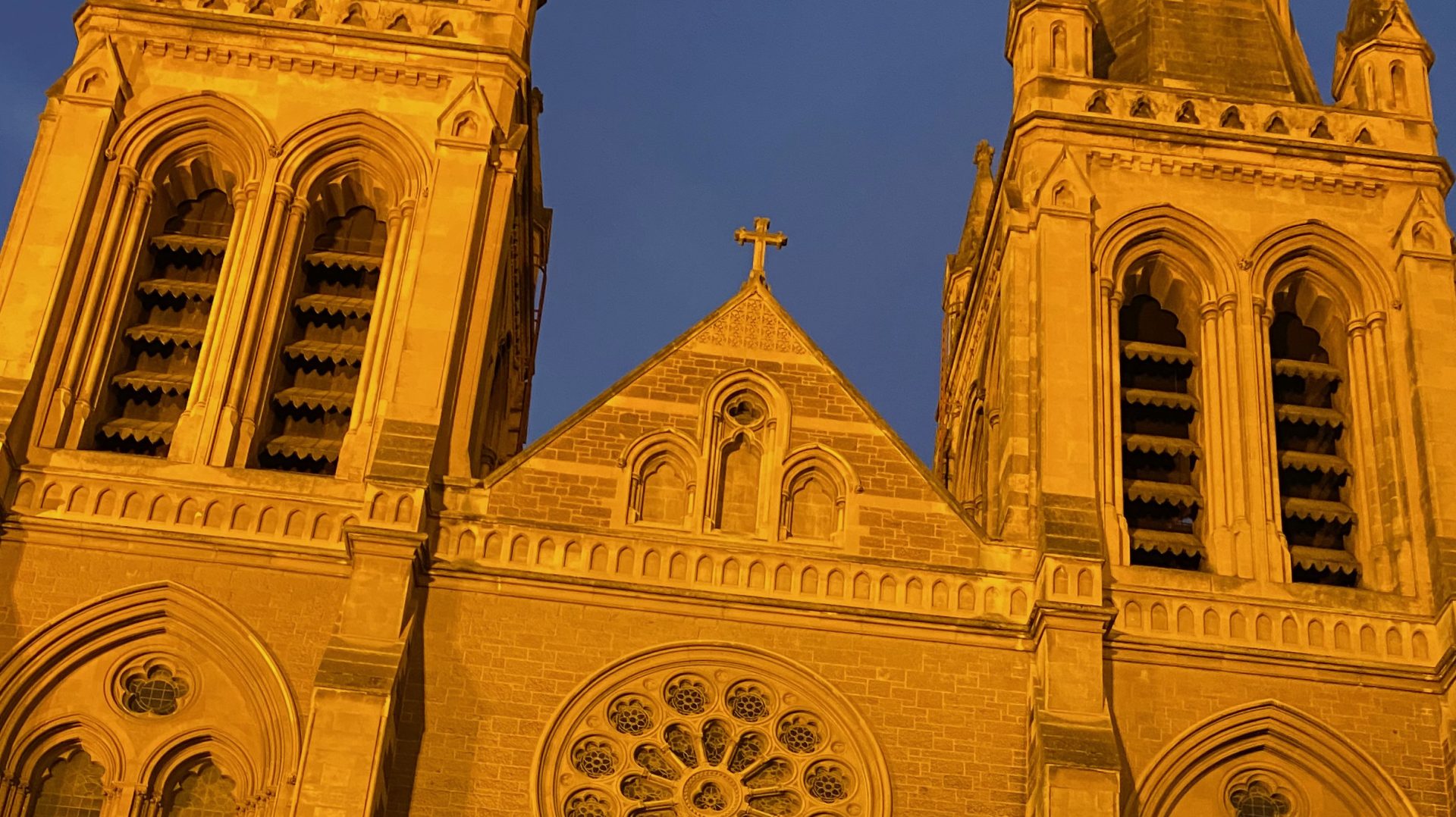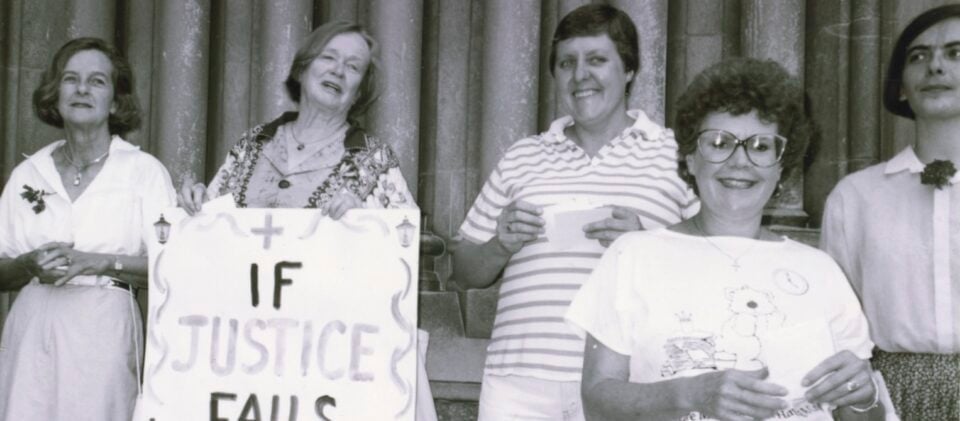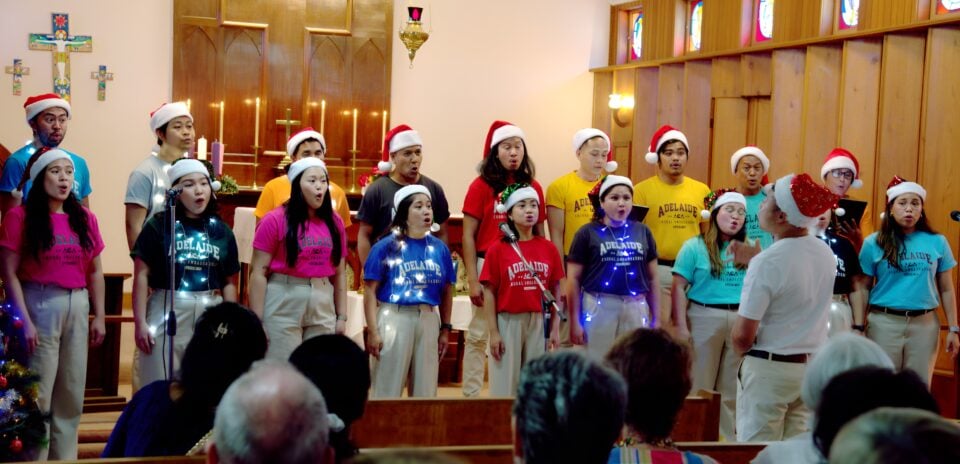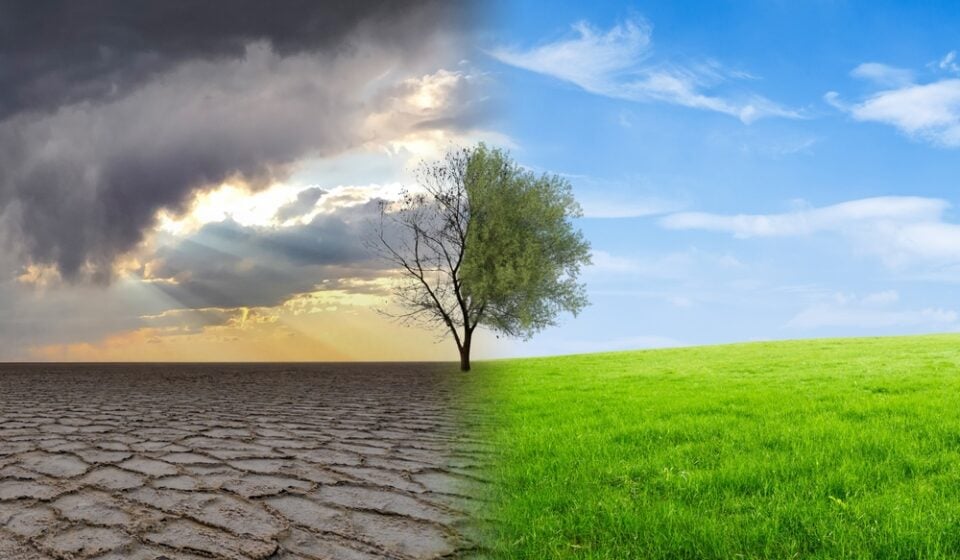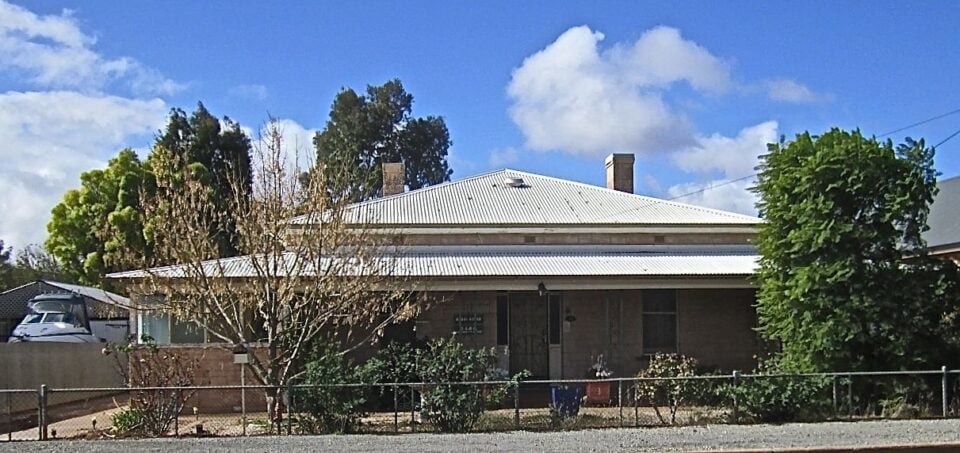The scourge of domestic and family violence is an ugly truth which has been hidden or glossed over for too long. The Rev’d Joan Riley’s sermon from the Sunday 5 December Evensong to highlight gender-based violence calls to restore what was broken
You can download the Order of Service here and read the Litany below following the sermon.
At the beginning of the account of creation in the Book of Genesis the profound words of the equality of women and men are given: Let us make humankind in our image… The ‘adam’ is used here, the Hebrew word for humankind, a person.
The Hebrew root of the word means beginnings, the simplicity before the complexity of what comes next. God created the adam in God’s image, in the image of God God created them; male and female God created them. With this equality God blessed humankind with fruitfulness.
Alongside the blessing, the power to subdue and dominate is given. The human experience has shown that the power to subdue and dominate does not cooperate with equality. The context of domination and the act of subduing have exceeded what it means to be created equally in God’s image. Earth has suffered. Women and children have suffered. Marginalised and vulnerable people have suffered and the command to fill the Earth has come at the cost of destruction of species, habitats, environmental degradation. Abuse of the intention of domination and subjection within the context of humankind made in the image of God has led to violence and lasting harm among women and men.

In the opening verses of the sermon on the mount, in the words of the beatitudes, Jesus utters again the blessing on human beings. This time however, the blessings are stated with a distinction favouring those for whom subjection and domination by others has been felt most heavily. In the generations since the adam sin has marred the image of God. Jesus’s teaching in the sermon on the mount is given to recontextualise the image, to send the divine blessing in places that are starved of blessings, thirsty for love.
The beatitudes set the context for the sermon on the mount, chapters 5-7 of Matthew’s gospel. The sermon makes demands of Christian disciples, a moral code that restores the balance between the invitation to practice subjection and domination and the adam made in the image of God. Jesus says that those who are poor in spirit are blessed, those who mourn are blessed, the meek and those denied justice are blessed, those who show mercy are blessed, the pure in heart – the innocent ones, the peacemakers and the ones who are persecuted both for the sake of what is right and on account of Jesus – they too are blessed. There are no woes in Matthew’s account of Jesus’ beatitudes. The woes belong to the sayings on the plain, the level place in the gospel of Luke where Jesus authenticated those whom God would bless. We might presume woes in Matthew, they are part of the restoring of balance.
These readings fit the purpose of our coming together this evening. Some of you are here because you love the service of Evensong in the cathedral, hearing angelic-like voices offering something beautiful in this magnificent building in praise to God. The church is not always so beautiful however and others of us are here tonight because the church has not always upheld those upon whom Jesus bestows blessings. We are here because the image of God in humanity has been marred by violence between men and women. The free will to subject the Earth and dominate the animals has been taken up with a distorted intention and women and children have been put into subjection and been dominated even until this day.
The scourge of domestic and family violence is an ugly truth which has been hidden or glossed over, ignored, seen as acceptable. And the church has played its own role in enabling it to continue.
In this service we have an opportunity to express lament, to grieve that as a church we should have done better. There have been times when church communities have not recognised that violence is occurring among members, or when they have seen it, have not done anything about it. Sometimes church communities have colluded with the violence, shaming those who try to escape violent relationships and applying pressure to return to an unsafe environment. Sometimes church members have ignored the violence, the pleas for support, silence and exclusion corroborating the feelings of worthlessness and being unloved felt by those whom Jesus says are blessed. Other times our teaching has convinced people that the violence is part of the natural order of creation.
We lament these things and seek to restore what is broken.

In October of this year the synod of the Anglican Church in this diocese adopted the ten commitments for preventing and responding to domestic and family violence. These commitments reflect the outcomes of a major research project, the first of its kind undertaken in a church context. The outcomes reveal that the prevalence of violence is higher in the church than in wider society. This should be alarming to all of us. The church, both as individual members and small communities, as well as the institution itself, must no longer respond as passive witnesses. Deaths from domestic and family violence are so high that if there were a vaccine every woman and girl would be taking it.
The very first of the ten commitments affirmed by the synod reads: Our church acknowledges and laments the violence which has been suffered by some of our members and repents of the part we have played in allowing an environment where violence went unaddressed. On many occasions church members are not directly involved in domestic and family violence – they are disconnected, thinking it’s not their business, that what goes on inside a home and between couples is private.
Australian society has operated in the same way for a long time. Most women have been subjected to some form of violence, either subtle or overt, inside the home or in the workplace. I left school when I was sixteen years old to work in the crash repair industry as an automotive spray painter. This was in the 1980s when the gender balance in the automotive industry was made up of almost all men. In some places I was the little girl who had to be protected but could never aspire to anything other than a novelty in a workshop, a girl in overalls. In other places I was seen as someone in the wrong place, rejected, subject to cleaning dirty toilets, rude jokes, pornographic images of women in explicit sexual positions pasted in lunchrooms and over work benches, my skills at producing a great finish on a motor vehicle wasted.
Every woman has a story. Some people have bravely spoken out, demanding a movement of change, to restore the image of God made in humankind. The sixteen days of activism against gender-based violence is making a difference, a swell of change is building, a new hymn which the church must sing – a hymn which builds to an apex of cultural change.

Remember Zahra Abrahimzadeh brutally murdered in front of 300 people in 2010 in Adelaide. Remember Hannah Clarke and her three children burned alive in Queensland in 2020. Remember baby Kobi Shepherdson flung over the Whispering Wall in a murder-suicide by her father earlier this year.
These are the gruesome front page stories which disturb us internally. And there are many, many more which don’t make the media, who stand behind the front pages wearing scars physically and internally. Some of these are in our churches or they come to our churches seeking support.
What will we do? Will we welcome, support, listen, keep them safe, refer for professional help, show the kindness, love and compassion of Christ? Or will we keepdoing what the church has done for too long – deny, disbelieve, look the other way, ignore, utter platitudes?
As we offer lament, we have opportunity to begin to change things, to be a church for ever free of violence and abuse. We start the process with lament, acknowledging that things have not been right, that the fall from grace has landed heavier on certain people, including women and children, people with disabilities and all who have been on the receiving end of the will to dominate and subject others.
In his teaching Jesus expresses divine solidarity with the suffering, with all who have experienced domestic and family violence. In the beatitudes Jesus restores the justice that has been denied to people who are made marginal in human communities. He calls these ones blessed. The Greek word makavrioV, or makavria in the feminine, means blessed. The blessed women, aiJ makavriai, will know the kingdom of heaven, they will have comfort when mourning, they will have a place in Earth, will be filled with all justice for the wrongdoing against them, they will feel the loving hand of mercy and be seen in the company of God.
As we offer our lament this evening in this grand building let us recall to whom we belong, the God in whose image human beings came to be. Let us lament the damage and destruction that has been caused since God sent the adam into Earth with the permission to subdue and dominate and let us pray for a restoration to right relationship with God and each other.
And let us recall with humility that Jesus blessed those women, children and men who have been subject to violence and abuse, that upon them he placed the favour of God.
May the church of God, its members and the institution which this very building represents speak the words and sing the joyous hymns which signal deep cultural change leading us back to the original image of God stamped in our souls.
The following is Litany from the service
Hear us, dear Jesus, when we cry to you for all the women and girls who are victims of violence.
For girls given or sold in marriage, and unwilling brides with no way out,
we cry out to you: bring justice!
For the women raped as a weapon of war, and for the children they bear in grief and shame, we cry out to you: bring justice!
For victims of rape who are killed, or take their own lives, and for the rape survivors who live with its scars, we cry out to you: bring justice!
For the girls denied access to education, and told they are stupid or worthless or expendable, we cry out to you: bring justice!
For the girls and women sold or tricked into the sex trade, and for sex workers exposed to disease and violence, we cry out to you: bring justice!
For the mothers whose children are taken away by armies, governments, churches or family members, we cry out to you: bring justice!
For the women bullied in their workplaces, belittled, underpaid, threatened with losing their job, we cry out to you: bring justice!
For the women in prison, abused and abusing, beset by poverty, mental illness and addictions, we cry out to you: bring justice!
For the older women, frail in body or mind, fearful of violence, manipulation or neglect,
we cry out to you: bring justice!
For women bashed in their own homes, and for children who see and hear the violence,
we cry out to you: bring justice!
We cry to you Jesus, our friend and saviour, for our sisters, our daughters, our mothers, ourselves. Respect them, love them, embolden them.
Bring justice. Bring healing. Bring hope. Amen.
God of wisdom and care, we pray for all who share in the work of transforming the world so that girls and boys, women and men, may live, work, and learn together with respect and dignity.
For maternal and children’s health workers, and advocates for girls’ education, Living God, in your mercy, hear our prayer.
For marriage counsellors and relationship educators developing healthy partnerships and parenting skills, Living God, in your mercy, hear our prayer.
For women in business, industry, politics and education, leading by example and providing role models, Living God, in your mercy, hear our prayer.
For police and community workers sifting through the damage done by domestic violence. Living God, in your mercy, hear our prayer.
For prison chaplains and restorative justice programmes, giving hope where violence has shattered many lives, Living God, in your mercy, hear our prayer.
For counsellors and social workers offering a new start for survivors of domestic violence. Living God, in your mercy, hear our prayer.
For women’s refuges and men’s support groups creating safe spaces for problems to be named and tackled, Living God, in your mercy, hear our prayer.
For organisations, programmes and individuals offering support to survivors of rape and sexual abuse, Living God, in your mercy, hear our prayer.
For specialised care for traumatised children bringing healing and hope for a life beyond suffering, Living God, in your mercy, hear our prayer.
For religious leaders and communities of faith, instilling values and shaping beliefs about the worth of women and girls, Living God, in your mercy, hear our prayer.
Come, Holy Spirit! Blessed are you, Spirit of faith, for you reveal a God in whose image female and male are equally made and blessed and loved. Come, Holy Spirit!
Blessed are you, Spirit of courage, for you speak through the women and girls who question the patterns and challenge the causes of violence. Come, Holy Spirit!
Blessed are you, Spirit of power, for you raise up women and girls to be wise leaders, passionate advocates, agents of change. Come, Holy Spirit!
Blessed are you, Spirit of integrity, for you call women and men to be partners for change, working together with mutual trust and respect. Come, Holy Spirit!
We thank you for men and boys who are contributing to deep cultural transformation. Stir up leadership and communities of change. Come, Holy Spirit!
We thank you for academics, business leaders, politicians, and church leaders, who are offering wisdom, resources, and support for change. Encourage and embolden them. Come, Holy Spirit!
Breathe hope into places of conflict and build up the peacemakers, so that girls and women can live in safety. Come, Holy Spirit!
Come, Holy Spirit, come to your beloved daughters today with love, freedom and peace through Jesus Christ, who was born of the woman Mary, to bring abundant life to all. Amen.
The Lord Jesus bless you with compassion for the vulnerable, and grace to stand with them, sharing his strength. Amen.
The Holy Spirit bless you with a prayerful heart, and power to breathe peace, transforming the world. Amen.
The blessing of the holy and glorious Trinity, eternal Wisdom, living Word, abiding Spirit, be among you and remain with you always. Amen.
